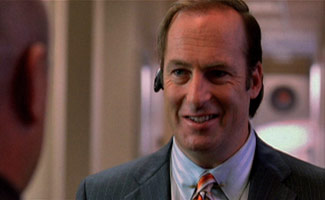From SI....
If Hernandez is ultimately charged, he could face any of the following wide range of charges:
Accessory Before the Fact
If Hernandez is charged with accessory before the fact, it would be based on him allegedly providing assistance to the person or persons who later murdered Lloyd. Accessory before the fact requires more than simply knowing a crime is going to take place -- it requires actual assistance to the person or persons who committed the crime and an intent to see the crime happen. Assistance in the form of planning, funding or encouragement would likely satisfy the charge. But Hernandez merely being in the car implicated in the homicide would probably not be enough -- prosecutors would have to show he was more than a bystander or onlooker.
Accessory before the fact is a very serious charge because the person charged can face the same penalty as the person who committed the crime. In other words, a person who aids a murderer before the act can face the same penalty as the murderer. A charge of this type sometimes entails witnesses testifying against one another to save themselves.
Accessory After the Fact
If Hernandez was charged with accessory after the fact, the charge would be based on Hernandez assisting the principal felon after Lloyd was shot. This could center on Hernandez harboring the shooter or destroying evidence that might implicate the shooter. If verified, reports that Hernandez destroyed surveillance equipment and his cell phone, and that cleaners cleaned his home a day after the alleged shooting, could help prosecutors prove Hernandez was an accessory after the fact.
The maximum penalty for accessory after the fact is seven years in prison, though sentences can be much lighter, especially for someone without a criminal record.
Conspiracy
If Hernandez is charged with conspiracy, the charge would be based on Hernandez intentionally joining at least one other person to carry out an unlawful plan. Conspiracy is similar to accessory but is similar to accessory but requires joint involvement. In Massachusetts, a person charged with conspiracy in a murder can face a maximum of 20 years in prison. The absence of a past criminal record usually leads to a much lighter penalty than the maximum.
Defenses
If Hernandez is charged with any crime, we would hear from his attorneys about alleged weaknesses in the police's account of what took place. A perceived gap in the police's time line of events and inconsistent statements from witnesses are plausible arguments. Some type of alibi for Hernandez's whereabouts would also be offered. Prosecutors also have to prove any charges beyond a reasonable doubt - not an easy task, especially when the defendant has substantial financial resources to assemble a top legal team.
Bottom line
If Hernandez is charged, some of the possible crimes would carry very lengthy maximum sentences. Hernandez's attorneys, however, would offer defenses and points of information that rebuke law enforcement's assertions. Also, if Hernandez is convicted, he would likely receive a much lesser penalty than the maximum because he would be a first-time offender. Cooperation with law enforcement, willingness to implicate others, acceptance of fault and demonstration of contrition would also be viewed favorably by a sentencing
judge.
Still, if Hernandez is charged with a crime in connection to Lloyd's death, he would probably be facing at least a few years in prison rather a few months in jail.
Read More: Hernandez faces wide range of legal possibilities - NFL - Michael McCann - SI.com



 You know Saul would get him off (Pause)..
You know Saul would get him off (Pause)..


